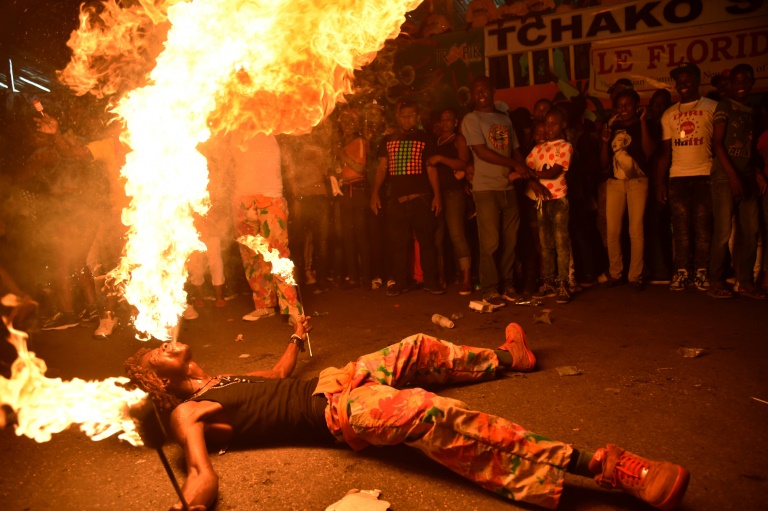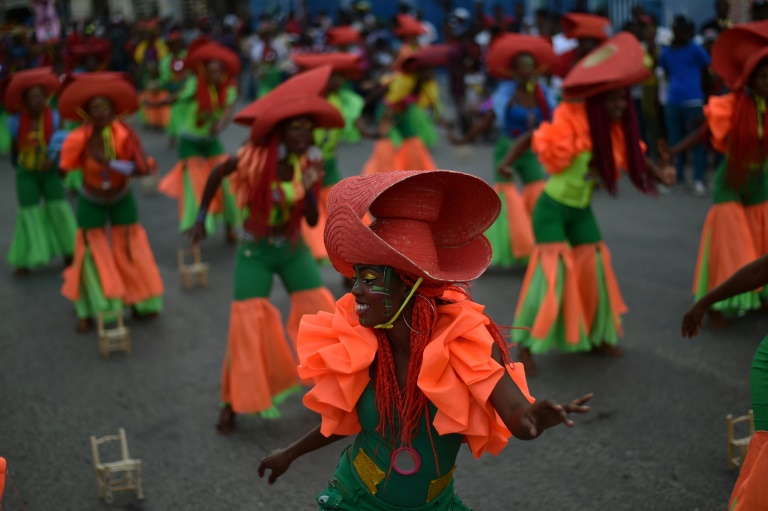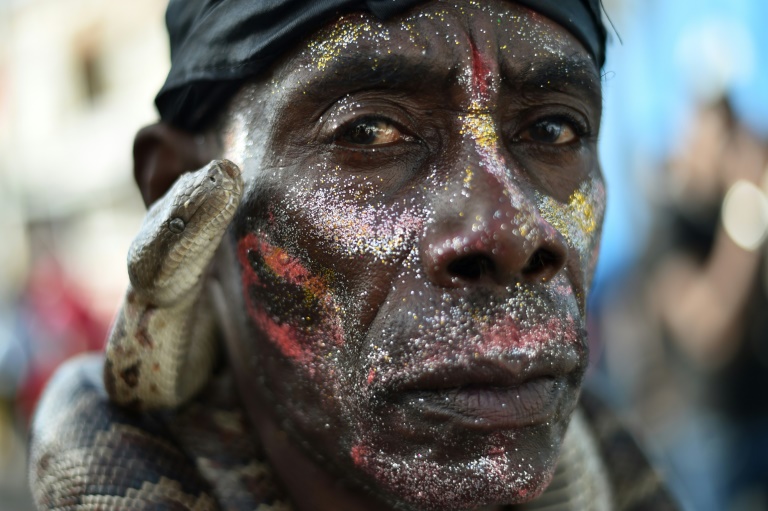Tens of thousands of people began Sunday three days of watching their favorite musicians and letting off steam in Haiti, forgetting their daily troubles and the controversies the festivities never fail to attract.

Under a blazing sun, dance troops paraded all afternoon on the Champ de Mars in Port-au-Prince. At night, a crowd took over the huge public square to follow the floats.
Everybody knows when carnival takes place, but nevertheless, each year it is organized at a snail’s pace until the very last minute.
It’s an effort not helped by the fact that, although it is Haiti’s largest cultural event, every year a new provisional committee is appointed to manage the event’s finances and artistic aspects.
“Every year, there are planning difficulties — but every year, we do the same thing again,” Emmelie Prophete, spokeswoman for the committee — set up just two months ago — admits with a smile.
“The difference this year is that we are trying to pull off a carnival without debt. Before, there were always suppliers who were not paid — then the following year, they did not want to work with the committee. But we needed them, the offer of services being very limited,” Prophete explained.
– A political carnival –

A fire-swallower performs at carnival
The annual improvisation benefits the political sector, which can easily influence the most important decisions — such as the artists selected for the nighttime parades.
“The big bands are chosen because they have been part of carnival for years,” Prophete said regretfully.
“Then, we try to choose the most popular ‘meringue’ (Haitian dance) musicians to liven up the course. Then, inevitably, politicians will have their say on this or that group. Carnival is very political.”
The politicization of carnival has increased since Michel Martelly, known as musician Sweet Micky — a carnival star for two decades — served as president from 2011 to 2016.
The participation of Martelly’s group in this year’s edition has sparked controversy — as his salacious attitude and tendency to insult critics prompted two cities to ban him from their parades.
Despite the protests of some feminist groups, the former president will perform on the Champ de Mars.

Dancers perform
The carnival spirit of freedom and debauchery delights most — and many of the songs composed for the occasion are not kind to those in charge.
“We say everything we want,” said Carel Pedre, an animator who runs a website compiling carnival “meringue” music. So far, the 2018 edition lists over 800 titles.
“We’ve received lots of carnival meringues talking about the Petrocaribe case and corruption,” Pedre said.
“They also talk about the big problem we have with garbage. There’s even one very popular song that talks about the bad behavior of our leaders, in their cars, with their sirens.
“Through all these meringues, you can get a complete view of the situation in the country: of a Haiti that suffers, that has its political problems, but also a Haiti that celebrates and has fun,” he added.
But cathartic as the songs may be, they’re also a reflection of the dire state of Haiti’s music industry.
– Rich and poor –

A reveler garlanded with a snake performs on the first day of Haiti’s carnival
“There are no other chances to showcase yourself, especially for young talents. We don’t have an awards ceremony, we don’t have big national music festivals — so everyone wants to make themselves known during carnival,” Pedre said.
While Haiti is one of the most unequal countries on the planet, carnival brings together Haitians from all economic and social backgrounds.
“Whether rich or poor, we dance to the same songs by the same bands,” said Pedre. “If we united like this all year round, Haiti would already be a developed country.”
Support Local Journalism
Add The Citizen as a Preferred Source on Google and follow us on Google News to see more of our trusted reporting in Google News and Top Stories.






![Honor Robot smartphone takes centre stage at MWC in Barcelona [VIDEOS]](https://media.citizen.co.za/wp-content/uploads/2026/03/Honor-Robot-Phone-300x200.jpg)